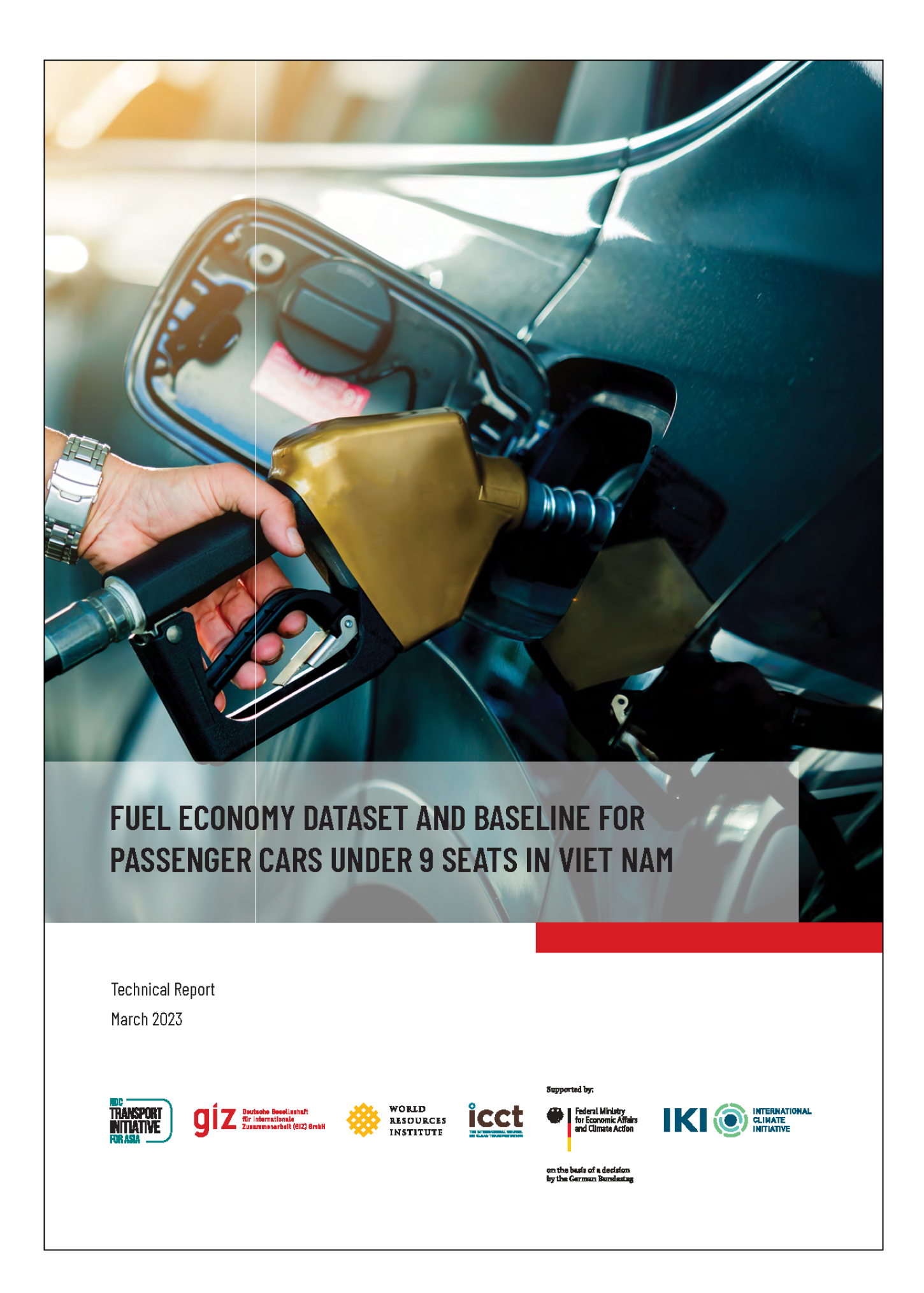Fuel Economy Dataset and Baseline for Passenger Cars under 9 Seats in Viet Nam
-
Title in Vietnamese
By Dr. Truong Manh Hung, Dr. Vu Van Tan, Assoc. Prof. Trinh Luong Mien, Dr. Nguyen Quoc Tuan
The report conducted an assessment to car manufacturers, policy frameworks and international practices as well as identified fiscal incentives through fuel efficiency/CO2-based taxation with regard to shift the energy issues into an opportunity to unlock the market potential in Viet Nam. It also aims to provide guidance and insights to policymakers with relevant solutions, based on corresponding emission levels in the context that Viet Nam has made strong commitments in the most updated Vietnam’s Nationally Determined Contributions (NDC).
Read more on changing-transport.org.
Download publication (English)
Tải xuống Ấn phẩm (Tiếng Việt)

